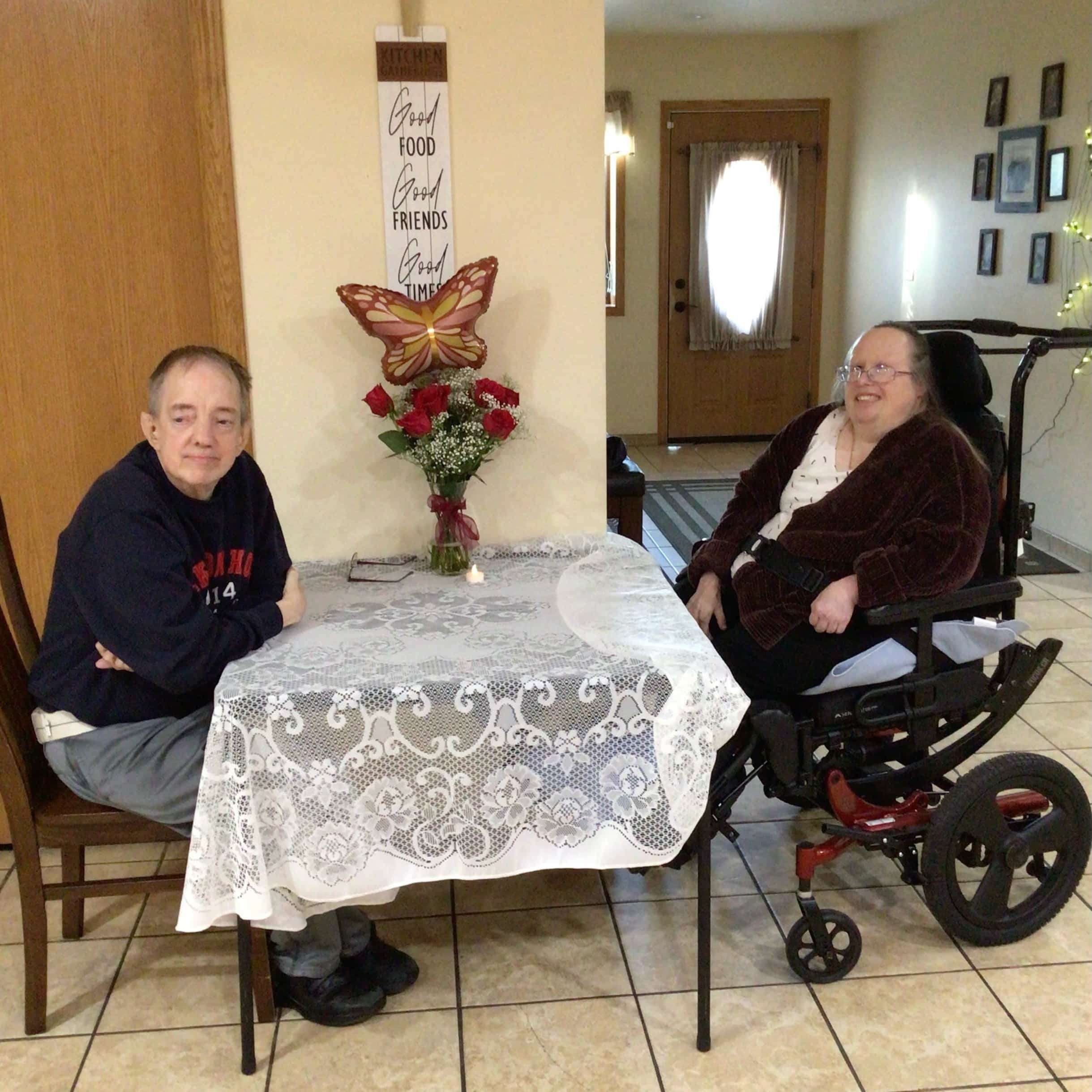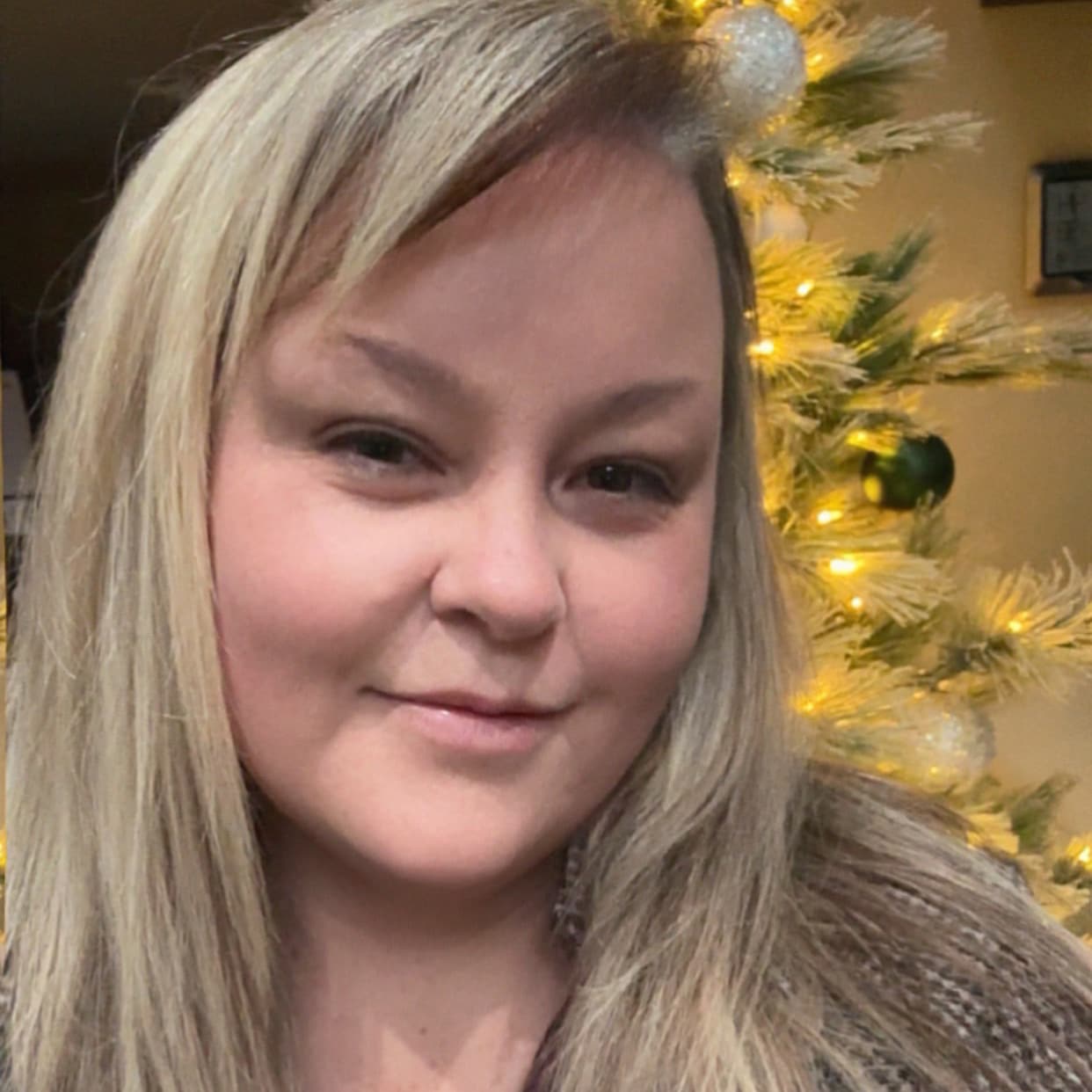
Rose Cyert, whose smiling face and peppy voice has greeted people at the HCO Central Office since 2016, retired at the beginning of January. Her job at Central Office included answering phones, greeting visitors, reviewing expenditures, tracking and ordering supplies for the program houses, and acting as support for other Central Office positions. Because of Rose’s talents at cooking and party planning, her support grew to include assisting with agency meetings and the Healthy Lifestyles program, which provides individuals with opportunities to engage in healthy and fun activities and enjoy healthy meals and treats.
Rose began her career at HCO in 2010, working as a Program Assistant at one of HCO’s residential programs. She had never done that sort of work before, as she had usually worked in an office setting, but she grew to love it. Her coworkers, coupled with the extensive training given to new employees, made Rose welcome the challenges of her new job.
She learned how to think critically about supporting others safely while still putting their values at the forefront. “It can be very difficult, especially with people who are non-verbal; there is not a lot of sharing going on so you almost have to have a history of them. I constantly was thinking: What would they like? What would they want?” she said. “They listen to the radio; they talk to people. They know a lot about what is going on, and I think our responsibility is to draw that out from them –what their hopes and dreams are, and what they want to do.”
She remembers convincing her coworkers and those they were supporting that an Oktoberfest party would be fun to organize, so they did! They even invited individuals and staff from other programs. She admits that she was a little surprised that they all responded favorably and the party was a big success, even though they scrambled to find seating space for everyone. From then on, her house was the “party house,” and Rose became an institution at HCO.
People often assume that in order to do direct support work at HCO, you would already need skills like patience, or a calm and relaxed demeanor. However, Rose credits building many of those skills with her decision to work at HCO. Learning to solve problems and find ways to learn new coping skills she also attributes to HCO. The monthly meetings she attended to openly discuss challenges that she and her fellow coworkers were dealing with was like a lifeline. “It was a reminder that you aren’t the only one,” Rose recalled. They were able to get advice and brainstorm solutions from their experiences in order to help each other. Rose joked that it can often be easiest to do the job when you are “flying by the seat of your pants,” because things rarely go as planned.
When she moved from direct support to working at the Central Office, Rose didn’t lose contact with all the individuals that she had built relationships with. They often called her or visited her in her new office. In the last few years of her tenure at HCO, Rose even went back to work on a very part-time basis in the program she started at.
Of course, the advent of the COVID-19 pandemic changed the last few years that Rose was at HCO. She said that fewer individuals, staff, and members of the public could drop in. For a time, the agency doors were locked, so it became Rose’s job to answer the front and back doors and deal with business at the door. She had to gather supplies to give to people, deliver their mail to them, and make sure everyone was supplied with Personal Protective Equipment – all at the outside office doors. She also had to disinfect the office twice a day, and said that with all these extra duties, she probably put in many more steps in a day than the average receptionist!
Rose said she will miss everything about working at HCO. She loved being helpful and the opportunity to make someone’s day better. She always joked that she had planned to work until she died, but the pandemic made her feel differently about retirement. It wasn’t an easy decision, however, COVID-19 made it seem like that could happen sooner rather than later. “There are still things I wanted to do,” she said, so she decided it was the right time.
HCO has changed Rose’s life in many positive ways, she said. Using skills she learned in training has enriched aspects of her personal life: it strengthened her relationships with her husband, family, and friends, and even helped her work through her parents’ end-of-life care.
In retirement, she will have more time for her family – husband of 48 years, Bill, and her three married children, Matt and Andrea, Michelle and Zach, and Mike and Celeste, and, of course, her grandchildren – Cassidy, Kaya, Julia, Virginia, Tristan, Isabella, Aidan, Xavier, and Avarie, who all live close. Her two brothers and one sister and their families all live within 250 miles. Her sister bought the home hobby farm in Bluff Siding. There, she and Rose have a “she-shed” where they will continue their mother’s love for producing crafts that they will probably donate.
Enjoy your retirement, Rose – you are missed!





